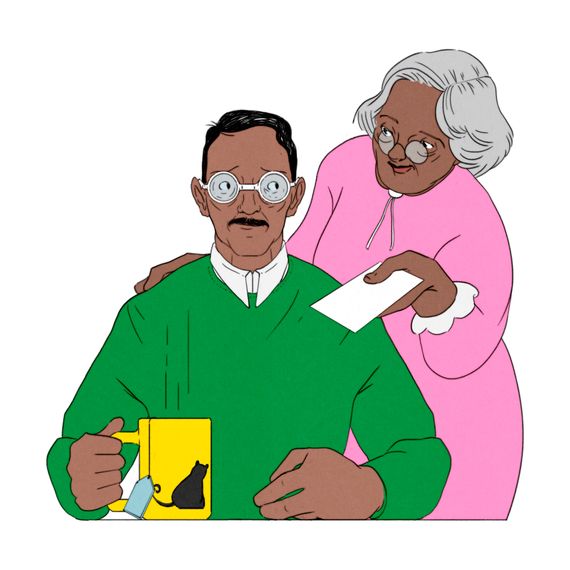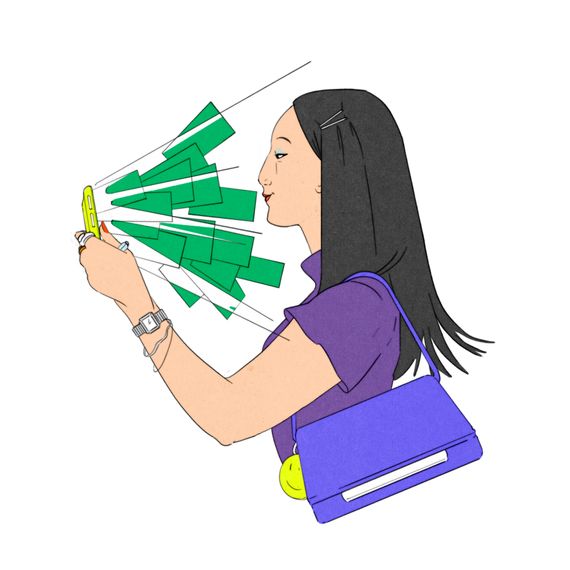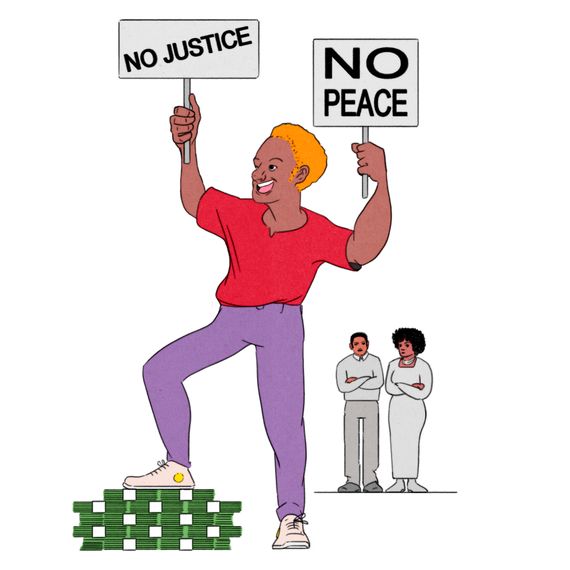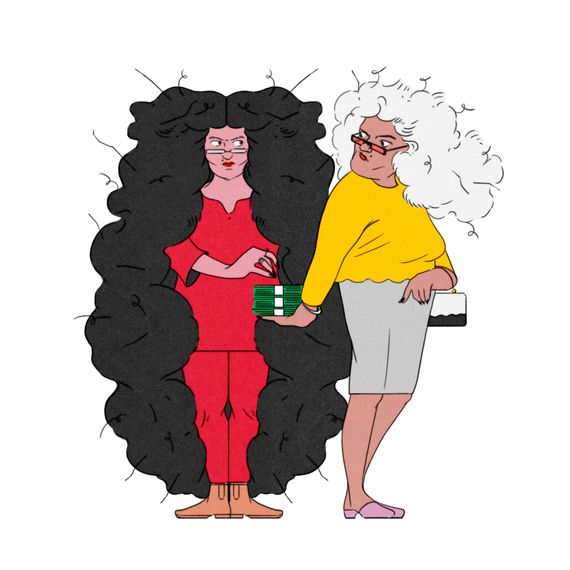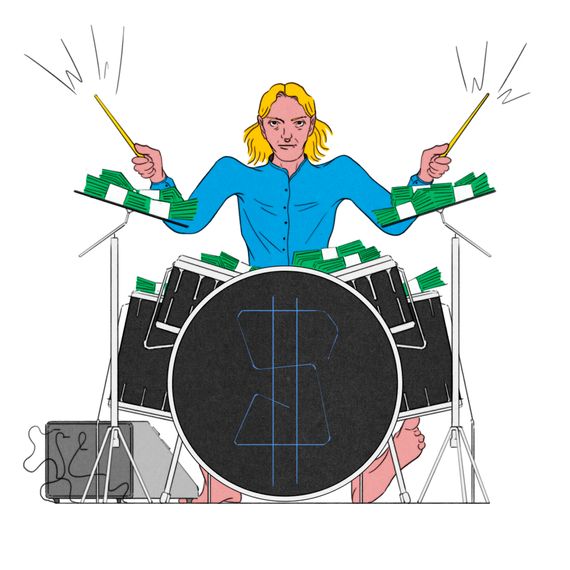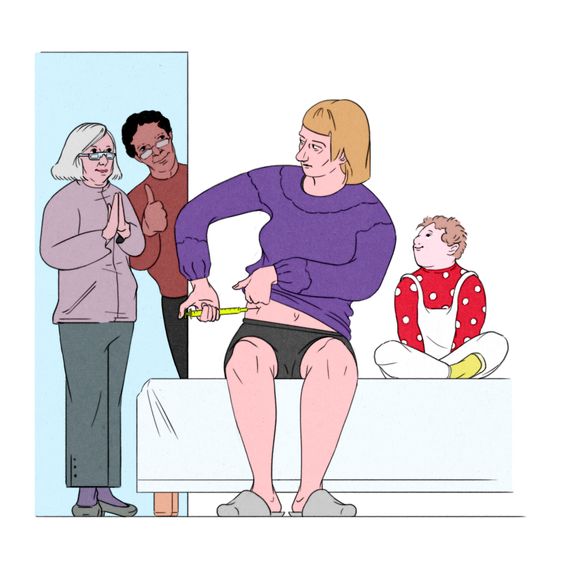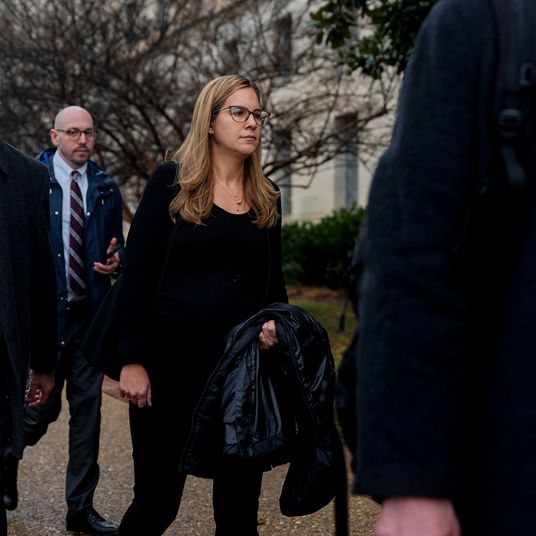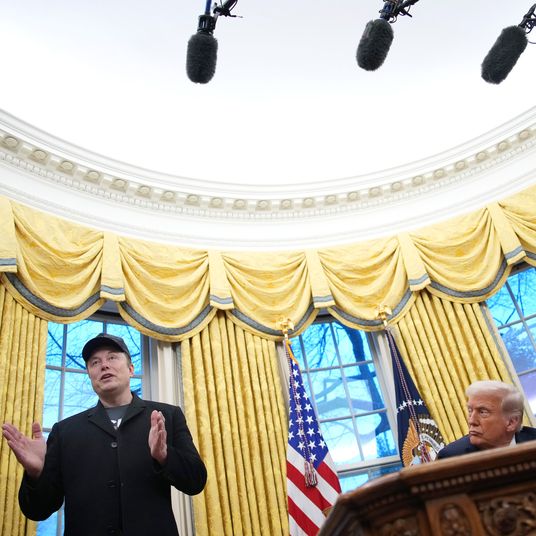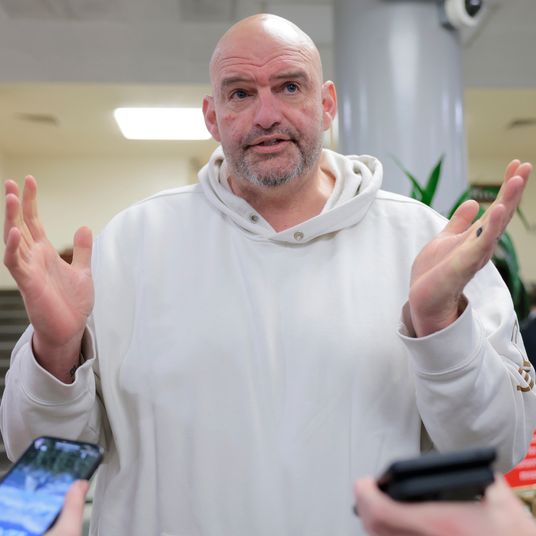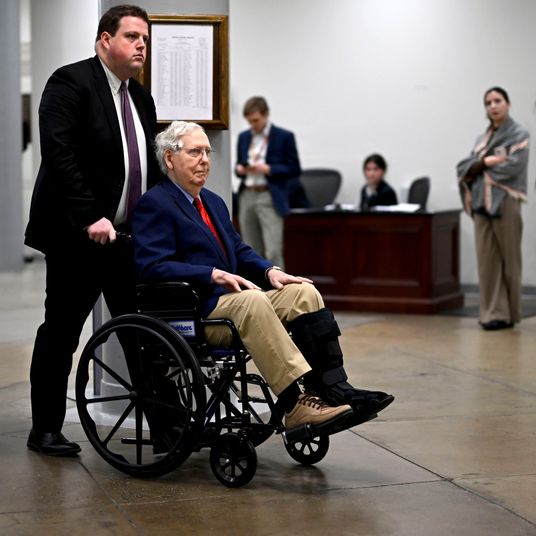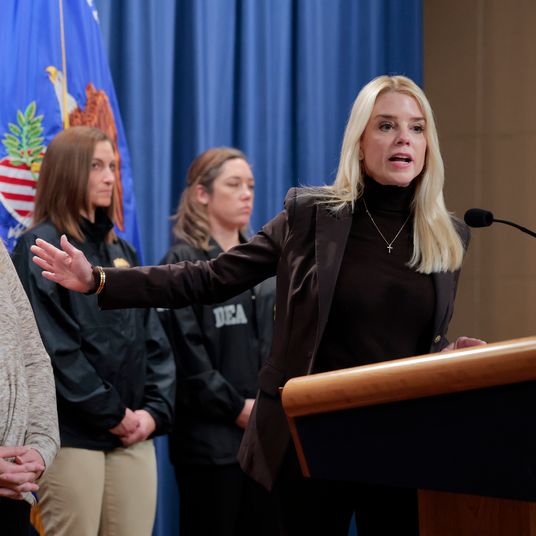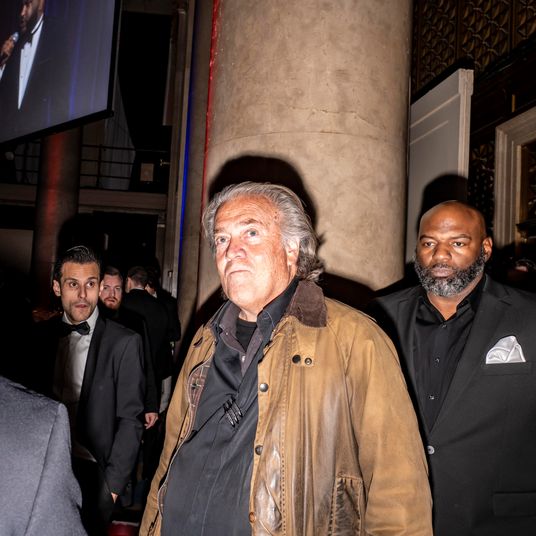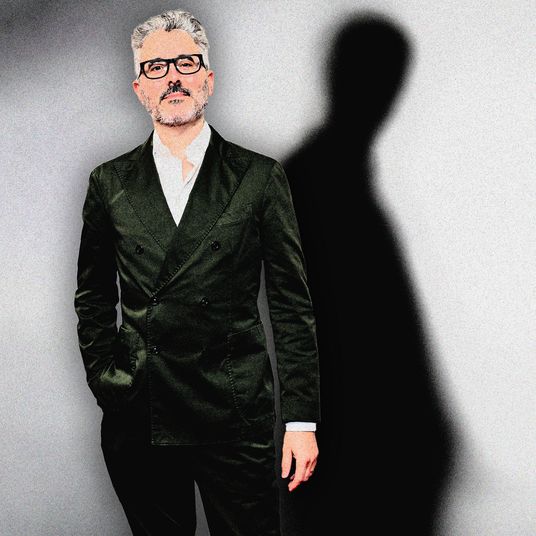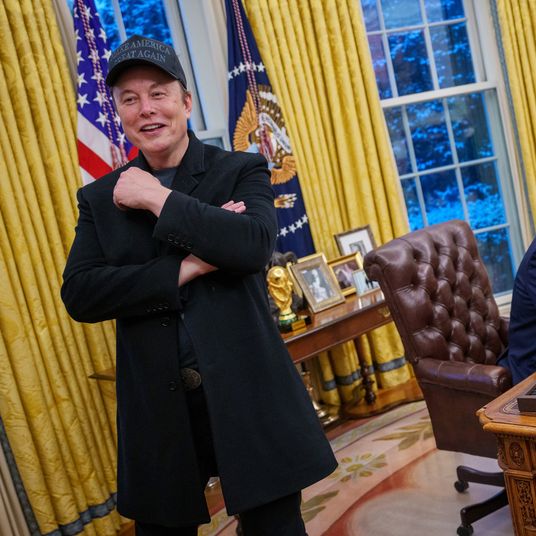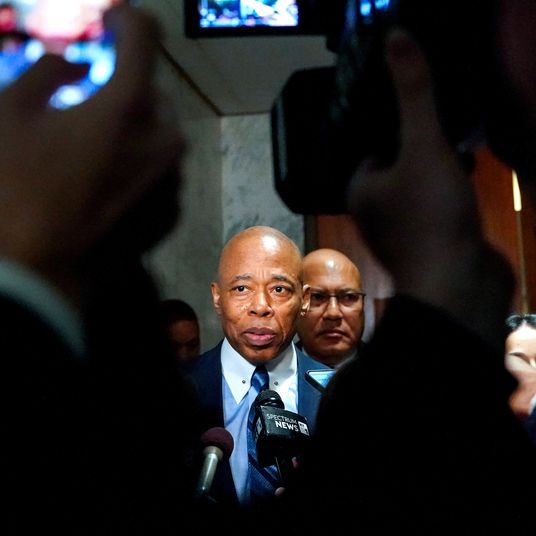
When you live in the wealthiest city in the world, it’s not hard to come up with people you suspect have access to their parents’ money. But when we set out to put faces to the generational wealth that sustains — and inflates — New York’s economy (and which is projected to be in the trillions over the next few decades), finding people who would be willing to talk about it in minute detail was a very different project.
In This Issue
The rejections were swift and often vague. DMs went unanswered or, worse, “liked.” We broadened our search again and again, drafting dozens of uncomfortable emails and texts to friends, co-workers, family friends, family of friends, former bosses, exes, people we met once and vaguely kept up with on Instagram. We dropped uninvited into Facebook groups (and, in some cases, were just as quickly ushered out of them). When we brought it up at drinks and holiday parties, conversations ended with a gauzy look of confusion or a sudden beeline to the bathroom. “I’ll ask around!” they would often say, followed by a prompt “Sounds fascinating, though!” Spending your parents’ money, we realized, may be the very last taboo in polite society.
These 14 people range from those whose grandparents ran multimillion-dollar media empires to those whose teacher-parents made decent stock returns. In awkward conversations that occasionally became therapy sessions, they answered our questions candidly: How much, how often, for what? Several admitted they weren’t even sure how to label their own class status in a city of extreme wealth. Nearly all of them remarked that they hadn’t ever talked about this with anyone else — ever.
Nosy Conversations With …
• The Psychologist Crippled By Guilt Over Her Privilege
• The Divorced Dad Cashing His Mother’s Social Security Checks
• The Teacher Who Buffers Her Lifestyle With a Monthly Allowance
• The Woman Whose Parents Control Her Love Life
• The Banker Whose Parents Wire Money From China
• The Social Worker Living in Her Grandparents’ Sprawling Apartment
• The Upper West Sider Whose Parents Subsidized His Community Organizing
• The Filmmaker Whose Family Pays for Her Keratin Treatments
• The Mom Whose Parents Cover Two Private-School Tuitions
• The Musician Who Keeps His Wealth a Secret
• The Upper East Sider Who Traded Privacy for IVF
• The Fashion Designer Who Worries Taking Money Might Make Him Less of a Man
• The Doctor Whose Parents Helped Her Open Her Own Practice
• The Millennial Who Pretended to Be Straight to Get Their Dad’s Help
.
The Psychologist Crippled By Guilt Over Her Privilege
Age: 39
Location: Brooklyn
The Money: Just over a million dollars
I thought I was middle class most of my life. My parents were frugal. My dad was a teacher and my mom was a mathematician, but she was very sick for most of my childhood and didn’t work for long. They told me I had to go to a public university for college because a private college was out of the question. After I graduated, I let them know I wanted to go to grad school and expected to hear the same response, but instead they said, “We can pay for that.”
My parents wound up covering eight years of my Ph.D. program in New York City, including my rent, food, and tuition. I didn’t live exorbitantly. I didn’t want to overspend and put them into debt — at that time, I still did not understand what we were dealing with as far as their wealth. My family gave me the money for rent, which I then gave to my roommate. We did that for appearances. Their financial support was so embarrassing to me. And it still is, honestly.
I think if I had said, “Dad, I want to try to be an influencer, and I need you to fund my lifestyle,” he would have been like, “You won’t be seeing a dime from me.” But because I was in school and doing things that he considered worthwhile, he was happy to support me.
While I was in graduate school, my mother was dying. She really wanted to see my husband and me settled in a home, so we bought a condo in Brooklyn and my parents gave us all the money for the down payment. We closed right as COVID hit. Then, after I graduated, we sold it and did well with the sale. We recently used that money to buy a house. Now my dad is helping us pay to renovate it and pay a nanny. At this point, he has given me over a million dollars — he made it with a small investment in the stock market — and there’s over a million left for me.
I often feel that if my colleagues found out that I don’t have Ph.D. debt, they would be like, “How do you relate to your patients? And are you really working hard?” They might think I don’t love the work as much as they do because there’s just not as much on the line for me. I feel fortunate, but I have so much guilt. In fact, I have had so much guilt for so long that I developed an anxiety disorder I’ve had to treat and manage. There were periods when I didn’t function well because it bothered me so much.
.
The Divorced Dad Cashing His Mother’s Social Security Checks
Age: 47
Location: Westchester
The Money: $1,000 per month
It didn’t take much for my mother to see that I was sort of broken after my divorce in 2019. I had been laid off a few years earlier from a career in marketing, and I had lost about half the money I entered my marriage with to the settlement.
I didn’t say, “Hey, Mom, I’m desperate here.” But she felt it. At a certain point, she became eligible for Social Security, and my dad was like, “We are going to give you Mom’s Social Security checks.” So I get a thousand bucks from them a month, which, honestly, still isn’t enough. I had to move from the Upper East Side to the Bronx two summers ago, then last summer I moved to Westchester. My son is enrolled in a $94,000-a-year private school; I took the tuition out of my 401(k).
I don’t tell most people about the help. I have pride. I’m an Ivy League graduate. I’m a published author. There’s a stigma. A lot of people, especially of an older generation, might say I should be punished in some way for not living up to the success that I portray.
3.
The Teacher Who Buffers Her Lifestyle With a Monthly Allowance
Age: 34
Location: Murray Hill
The Money: $335,000
The gifting started when I was 24 and single and my parents — they’re in real estate — bought me a studio in Forest Hills. Both my name and my dad’s were on the deed. I lived in that apartment and then eight years ago, when my now-husband and I got serious, my dad bought me out of my share (which he had originally paid for anyway) and I used that couple hundred-thousand dollars for the down payment on a two-bedroom in a doorman building in Murray Hill.
Had my parents not helped us, we would have had to rent and would be in a worse apartment — maybe in Jackson Heights — or we’d have had to move out of the city because rents keep going up. Instead, we’ve been able to live a stable life. Our maintenance hasn’t increased, and our mortgage is a golden 2 percent.
When I bought the Murray Hill apartment, I told everyone, “My parents gave us money.” I’m pretty open about the help my parents give me because I don’t want anyone to think that this lifestyle is attainable on just my and my husband’s incomes. Before the first apartment, I drove an Infiniti, and I would tell people, “Guys, my dad is clearly paying for this. A 24-year-old should not be driving this car.”
Now I have a daughter, and my parents and my grandma send me about $2,400 for her every month. I call it an allowance. It’s funny to be so grown up and calling it that, but that’s what it is. It started before I had a baby, but it has gotten larger since she arrived. It helps pay for day care. I could go and spend it at Bloomingdale’s, but I don’t.
For me, this money is the answer to Can I eat out as often as I want to? Can we go on this vacation? But our day-to-day life wouldn’t be affected if we didn’t have it. I mean, my husband’s in finance. I’m a teacher. Together, we’re pulling in six figures, but in Manhattan it just never seems like enough.
I sometimes think to myself, Am I a trust-fund baby, or are we middle class? I can’t even tell what middle class means in Manhattan. I know parents who bought their kids $4 million apartments in Tribeca or Hamptons homes. My parents are not giving me anything like that, so I’m conditioned to think this is kind of the bare minimum. But I also know it’s not, because I have friends in Philadelphia and Buffalo who bought their houses with the money in their savings accounts.
At the end of the day, we have more money than we should, and that’s pretty nice.
4.
The Woman Whose Parents Control Her Love Life
Age: 29
Location: Manhattan
The Money: The full price of a Manhattan condo and funds for travel, $200,000 per year in spending money
My parents have always been very particular about the kind of friends I have. Growing up, I was always in private schools, where the community was preselected. Everyone came from a lot of wealth. Many of my friendships were “family friends.” My parents put in a lot of effort to make sure I remained close to those kids because they had already been vetted.
Right out of college, I had a group of friends I made through work. A lot of us were new grads. Everyone wanted to live in a house together, and they asked if I wanted to join. My parents were like, “You need your own space. You need your privacy. What if we want to come visit?” And so I lived by myself in an apartment that my parents helped to pay for. With my work friends, I felt like, Oh, we’re not living with the same struggles. I’m not scrambling to make rent. I can’t really relate to you. My parents also gave me money for travel and other discretionary expenses, and I’ve always had the autonomy to spend as needed without any restrictions. I had another group of friends from college who were like me (all still being helped by their parents), so we could plan quarterly trips to Europe or down to the Caribbean. Not being able to do that with these new friends strained the relationships. It was always kind of unsaid.
I met someone around then. He didn’t come from a bad background; he grew up in a very loving family and was an attorney making good money. But when I told my parents about him, their first question was, “Well, where did he go to law school?” And it was a state school. I still remember my parents making a face. At first, I thought they’d come around. But the more questions they asked that I couldn’t produce the right answer to — “Which law firm is he working for?” “What do his parents do?” “What did his grandparents do?” “Whose wedding are you guys going to?” — the more hopeless I felt. At some point, their questions became more of a critique, and anytime I talked to my mom, she’d be like, “Oh, so-and-so’s kid is dating this person who went to this school and works at this firm.”
During the pandemic, this partner and I moved in together for a little while. We’d been serious for three years at that point. My parents’ reactions were like, “Okay, it seems like you probably don’t need any support from us anymore. Good luck.” We obviously managed, but it was definitely jarring. Like, all of a sudden, the income that I made was the only money I had. At the start of the pandemic, it wasn’t that big a deal, but as the world opened up again, it became a lot more noticeable. My friends were traveling again, and we were going out more, and I was suddenly having to be super-money-conscious. It was really the first time where it was like, “Oh, shit. We’re going to have to look at some cheaper Airbnb options. We’re going to have to fly basic economy.” And it just got in the way of me being able to be fully present.
I also felt pressure seeing a lot of the partners my friends were ending up with and seeing the lifestyles they were able to build because of their parents’ support. There was a part of me that started realizing, I don’t have access to this anymore because of the person I’m with.
A big thing was seeing their partners being embraced as part of the family. The partners were always invited to their annual ski trips or their summer trips to Europe. I kept doing all of those things with my own family but never with my partner. I met his family early on, and they were extremely welcoming. He kept asking, “Am I going to get to meet your parents soon?” And the answer was, unfortunately, “no.” I think the acceptance was what I was most envious of, more so than the houses and travel.
I could just tell that the longer I stayed in the relationship, the more I might be made to feel less than. And it was really hard because, to this day, the kind of banter the two of us had, the deep understanding and acceptance of who we were as people — that was really special. But it was a lifestyle thing. Like, This is someone who is okay with an average lifestyle or an upper-middle-class lifestyle. His mentality was “I don’t need to send my kids to private school. I didn’t go to private school, and I turned out fine.” And my thought process was obviously very different from that.
Now, I’m engaged to someone I met through mutual friends. He also went to the same group of private schools we all attended and graduated from an Ivy. Immediately, my parents were pleased. We also share a lot of the same friends; everyone is very career driven and likes living lavishly. We’re fulfilled from a social perspective and a work perspective, but I would say there’s a lot less focus on, like, “How do we enrich our relationship?” Which I felt was a core pillar of my previous one.
After we got engaged last year, my parents were like, “We’re buying this condo in Manhattan. Go and see if you like it.” It was the first big point of tension in my relationship. I think he kind of took it as a message, like, “Do they not trust that I can sustain this kind of lifestyle?”
They also shared details about our family trust, not necessarily how much was in it but the fact that we won’t have to worry about paying for our kids’ education or our future home. Their intent was basically “Enjoy your life without feeling like all of these things are going to be your responsibility.”
My fiancé wasn’t super-happy about that, either. Those were a rocky few weeks while he came to terms with it. I think he was feeling a bit deflated, and it was hard for me to relate. I was like, “Why are you unhappy?” I assume that for 99 percent of people, if you were like, “Hey, you never have to think about paying for your kids’ education or a home,” they’d be like, “Hell, yeah.”
We both had to see things from each other’s perspectives, but also he just had to accept that he gets some of these perks, even if it doesn’t sit well with him right now. I think he’ll come around to it in the long run.
5.
The Banker Whose Parents Wire Money From China
Age: 26
Location: Jersey City
The Money: $10,000 per year
My parents back in China always worry that I don’t know how to take care of myself, even though my salary is good — I make around $200,000 a year. My mom regularly asks me on WeChat if I have enough money. She’ll offer to wire me money without me having to ask. There are only very limited vendors that accept WeChat, but if she wants to send me money, sure, I’ll find a way to spend it. It’s usually at my discretion. It probably amounts to around $10,000 a year. Other times, they’ll buy me gifts, like a designer bag or some piece of jewelry.
I think it all stems from me being their only child because of the one-child policy that was in effect when I was born. They want to make sure I’m taken care of, and I think this is one way they know they can take care of me — making sure that I have enough money to spend.
6.
The Social Worker Living in Her Grandparents’ Sprawling Apartment
Age: 38
Location: Upper West Side
The Money: Luxury housing, about $80,000 in private nursery-school tuition, $1,000 per month for groceries and takeout, $350 a week for therapy
I definitely did not grow up thinking that this was a likely place I would be in my late 30s — married with two kids, living with my grandparents in their very big apartment overlooking Central Park.
I grew up out west, and by the time I was in my mid-20s, I decided I wanted to give New York a try. I knew I could stay in my grandparents’ extra room. That’s what it was: I’ll stay in the extra room, and I’ll figure it out. Then I decided to go to grad school, and it was like, Why am I going to move out during grad school? I have no income. Then I got a job, lost the job, got super-depressed, ran away, got married, and came back with my husband. Then I had a kid. And then I had another kid. And it’s like, When is the right moment to kneecap yourself financially?
Most of the food in the apartment is Fresh Direct, and that account is not billed to me. I’m also an authorized user on one of my grandparents’ credit cards. My parents cover my therapy, which costs $350 a week. They also pay tens of thousands of dollars for my son’s child care. My husband makes minimum wage; I’m a social worker. So all of those family members are making it possible for me to live the life I do — but they are also aging. My grandfather has Alzheimer’s. My dad is ravaged by neuropathy. So the cost of my privilege is managing their health care and finances wisely, ethically, with some kind of competence.
The families at school know about my living situation only because of the birthday-party circuit. Their reaction is usually “Oh my God, this is amazing.” They see the support I receive but not the other side, which is finding ice cream in the cupboard because the person you live with has Alzheimer’s. I mean, if you polled New Yorkers and told them, “You’ll live rent free, and your kids can go to whatever school you want, but the price is you’ll have to manage all of it — the bodies, accounts, appointments,” I don’t know how many would take the deal. Sometimes, in the conversations I have with clients in my role as a social worker — whether big-picture discussions of structural oppression, racism, and privilege or individual conversations — there are moments when I say to myself, Who am I to look at them with a straight face when they’re going to lose their housing or their kids are getting the shit beat out of them at a school they have no choice in sending them to?
Right now, my son is in free UPK4. He was able to get into the center I wanted because my family paid for the 1’s and 2’s program, which gives you priority admission. It’s an equity nightmare, and I did it because I could. I’m waiting to see if he gets into one of those K–12 schools that charges $65,000 a year for a 5-year-old. I applied for financial aid on the basis of my income, even though I will get help from a support system that’s ready to foot the bill for, let’s call it, $1.5 million of K–12 education for both children. I beat myself up about this stuff and I do it anyway, and then I beat myself up about it again, and then I do it again.
Personal wealth is not what you’re worth — it’s what you can activate. That’s the word I use. If you have the button, what does it matter who installed it? If you have access to it, you have access to it. And if the people who put the button there give you the green light to push it whenever you want, it becomes harder to tell the difference between a want and a need.
7.
The Upper West Sider Whose Parents Subsidized His Community Organizing
Age: 31
Location: Upper West Side
The Money: Almost $100,000 over his first five years in New York, up to $20,000 in donations to charities
After college, I tried unionizing at my publishing job, and I got fired in part for that. My parents took over my rent for a period and gave me an allowance. Because of that, I didn’t immediately jump back into work; I got really involved with community organizing.
I won’t pretend that we didn’t have lots of fights where my parents were really confused about why I wasn’t more focused on maximizing my income or saving up for a home. They were like, “You haven’t put away a ton of money for retirement, and you’re committing to giving thousands of dollars to these political causes.” I think they were just concerned about my ability to sustain myself.
I get where they’re coming from. Both of my parents grew up poor, and they have a much greater appreciation for material lack than I do. For them, it’s like, “You could afford, in all senses, to do whatever you want, so why are you choosing this?” As I got older, I became more aware of the fact that there was a lot of incarceration in our family that, as Black Americans, we didn’t really talk about. My mom dropped out of college to support her side of the family after my cousins were arrested in the war on drugs. I can’t think of a period when my parents haven’t given out thousands of dollars in loans to a cousin or a nephew. So it’s not that I don’t understand why they prioritize financial stability; it’s that I feel there should be a more robust social safety net. And I think they’re coming around to the fact that their money could play a role in making that happen.
8.
The Filmmaker Whose Family Pays for Her Keratin Treatments
Age: 39
Location: Carroll Gardens
The Money: $20,000
I’m a mother of three, and my parents still pay for my keratin hair treatments, and they also paid for my body waxing until my wedding because they thought I needed to get waxed to get married.
The money is largely coming from my mom because she has guilt that we have a lot of unruly hair, and I inherited that from her!
She uses cash my grandmother left her when she died — literally old $100 bills. So I’ll pay for it on my credit card — it’s about $700 because I’ll sneak in some color, too — then I’ll tell my mom, “I got keratin this month.” And she’s like, “Next time I see you, I’ll give you the cash. Don’t tell your father.”
They’ve helped me with other financial situations, but it comes with a heavy hand. It comes with responsibility. So as much as I would love for them to pay for after-school activities and tutoring and private-school tuition, I know that it’ll just come with a lot. The keratin has no emotional ramifications.
They also throw us a bone here and there … Like, we owed $10,000 in taxes. My dad happened to be at our house when we received that letter from the IRS, and he wrote us a check on the spot.
I wish they didn’t have to help me, ever, so I do feel guilty about it. Or maybe I just wish I didn’t need it. I have a little bit of an ego. I wish it was like, Of course I can afford my lifestyle. My parents think it’s crazy to live in Carroll Gardens with three kids. So I wish I could own up to it financially, saying, “Why do you care? I can afford it.” But actually, I can’t.
9.
The Mom Whose Parents Cover Two Private-School Tuitions
Age: 46
Location: Manhattan
The Money: $130,000 per year
Since my kids started preschool, my parents have offered to pay for their schooling. We didn’t have to ask.
Currently, they’re enrolled in an uptown independent school, which my husband and I would not be able to afford otherwise. The tuition bill of about $130,000 comes to me, and I pass it to my parents with a very big “Thank you.” Still, city life is sometimes just on the edge of uncomfortably expensive for us. We do this funny parenting dance of helping our children understand their privilege among a peer group that has them feeling decidedly middle class. The wealth we witnessed on playdates when they were younger was eye-popping. I picked my older kid up from one at a billionaire’s full-floor apartment in kindergarten, and the mom reported that he requested a tour of each room and admired her millwork.
10.
The Musician Who Keeps His Wealth a Secret
Age: 37
Location: Park Slope
The Money: Almost $500,000 per year
My grandparents sold a massive media conglomerate in the ’90s, and my grandmother put a lot of that money into investment funds, which have grown to be worth north of $300 million or so. My siblings and I are the only three beneficiaries. That is where the bulk of my income — about $500,000 annually — comes from.
I moved to New York to go to music school in 2007. My mom insisted on getting me this insane apartment in Union Square. She paid six months’ rent up front. It was basically a dorm room with a bunch of people getting fucked up all the time. At that point, my access to the money was completely dependent on my mom, and she was chronically unreliable but also insisted that I depend on her. I remember us having conversations where I told her I wanted to drop out and get a job, and she was very insistent: “I do not want you to get a job.”
I only lived there for a year, but I was a hot mess until I got sober. My brother has been an active heroin addict for 25 years. At some point in family therapy, he told my mom, “I’m never going to get clean if you don’t stop giving me money.” And she never stopped giving him money. She just didn’t know what to do, or she felt guilty. I really don’t know.
Most of my friends are broke musicians who tour to survive, which is becoming harder and harder to do. There has always been this unspoken dynamic where they can see that the life I have doesn’t align with what I do. I mean, the work I’ve been involved with is not raking in the kind of money that would allow me to buy a three-bedroom apartment in Park Slope or have the studios I’ve worked in. For a long time, I was unwilling to acknowledge that.
Family money sets you apart in a way that you don’t decide. If people know you have money, they’re going to think about you differently. And at some point, you start to think, Well, maybe that is who I am. For a long time, I felt my money was the only thing about me that had value. So I was using it kind of as a buffer to prevent people from actually knowing me. I’d just pay for everything. Especially in a creative field, when people see someone who has the ability to do what they want, they’ll latch on to that. They’re not always operating out of malice, but because of my experience with addiction and the people who go along with that, I can be very guarded. I often feel like I’m waiting for something to go wrong in a relationship. A lot of that is rooted in this big secret I’ve kept for a long time.
I still never tell anyone details, but I’m working on not lying about it. If you make music and you come into my studio, you’d be like, “Holy shit, this place costs a fortune.” And I’m not going to deny that — I’m going to be like, “Yes, clearly I have a million dollars’ worth of equipment.” But I can still be dismissive. I’ll say something like, “Yeah, I have investments.” In the past, I would really shrink and not be able to acknowledge it at all. Now, I know that stems from guilt as much as anger. When I was younger, I’d see people I love not being able to pay their rent, and that would leave me feeling angry and guilty. I had a couple friends who were struggling for a long time, and we had a kind of a blowup about it. At some point, one friend got super-drunk and told me that I don’t know what it’s like to be a person and that my experience of the world was not real and that I don’t know how to relate to people because I’m rich. These things are objectively kind of nasty to say but maybe not untrue.
11.
The Upper East Sider Who Traded Privacy for IVF
Age: 37
Location: Upper East Side
The Money: $15,000 and a Subaru
When I need money, I typically call my dad — it’s literally the only time I call him. I’ll have a nice chat with him and then I’ll ask him for what I need. When I was diagnosed with infertility, I wanted to keep that information between my husband and me — I’m a very private person — but we had only $10,000 of insurance coverage. I felt I had no choice but to ask my parents for help. They contributed $15,000 and as a result were more looped into the process than I would have liked. For my mom, their financial contribution created this expectation that I would tell her how it was going as it happened. My dad also bought us a car. He was like, “You need a Subaru. I found a dealership. We’ll go there when you’re in town.” He bought it to ensure we always have a way to come back to the Midwest. We can never use the excuse “Sorry, flights are too expensive. Guess we won’t be seeing you.”
12.
The Doctor Whose Parents Helped Her Open Her Own Practice
Age: 34
Location: Brooklyn
The Money: $100,000
My parents are Indian; they are very traditional. The way things work in India is that there’s a lot of deference to the opinions of older family members. My parents felt like they could tell me how to live my life. They paid for undergrad, but I took on loans for medical school in order to avoid feeling like they had control over me.
Deciding to take out loans was definitely a point of contention. My dad was like, “I’m the provider. I can take care of you.” I think immigrant parents have this mentality of “We moved to this country for you. The wealth we’re building is for you to have the opportunities we didn’t.” Even now, my dad is in his late 60s yet constantly talks about wanting to earn more so that when he dies, my sibling and I will be well protected.
Ultimately, I think I realized that it didn’t matter whether or not I took money from them; they were always going to be opinionated about my life. There was a period when I decided I didn’t want to work in medicine anymore, and I started making less money. At that point, my parents took over paying my loans and then ended up paying them off for me. When I went back into medicine, they helped me start my own practice here in New York. Now, my husband wants to open a business and we’re going to go ask my parents for money, even though his parents are also really wealthy; they’re just white and don’t function the same way my parents do.
I don’t think my in-laws ever talked to their kids about money. I think they always shielded them from those conversations. They both work in finance; they’ve done really well for themselves. They’re very willing to take us out to really nice dinners and buy us expensive bottles of wine. But it’s because those are the things they like to do and that’s how they like to spend their money. It’s not necessarily like, “How can we support you?” My husband, when he was younger, started his own bookstore, which required a lot of up-front capital. His parents gave him only $5,000. My parents, like lots of immigrants, are very entrepreneurial. One of the things they have always pushed is that we should work for ourselves. And they’ve been very open about the fact that however we want to go about that, they’ll pay for it.
13.
The Fashion Designer Who Worries Taking Money Might Make Him Less of a Man
Age: 52
Location: Upper East Side
The Money: $60,000
My grandparents’ money played a big role in my life. It’s funny, I kind of feel like we have gone in reverse as far as generational wealth is concerned—we’re downwardly mobile, in other words.
Their money allowed me to go to private school and move to New York to attend art school. I knew if I failed, I had someplace to go. I could experiment with my life in ways that some of my peers back home in Philly couldn’t. I think I always felt a bit guilty about that.
When my ex got pregnant with my son in 2011, it was a surprise to me. I wasn’t working steadily at the time, and my grandparents ended up giving us a down payment for an apartment.
I struggled accepting it. I viewed it as a last resort. I don’t know if it’s toxic masculinity or something, but you feel like this is your family, so you have to be the one to make it happen. That’s the American male perspective, I guess. I don’t tell people this, but I definitely wouldn’t have been able to stay in New York had I not gotten their help. I might have come back eventually, but I couldn’t have stayed.
14.
The Millennial Who Pretended to Be Straight to Get Their Dad’s Help
Age: 34
Location: Manhattan
The Money: $30,000 over two years, up to $6,000 annually for travel
My parents divorced when I was really young. My dad has been CEO of a plastics business in Morocco my entire life. He is a conservative-orthodox Muslim, which was the tradition I was raised in. My mom is trans, and I’m queer myself. But I’ve never come out to my dad.
I graduated in 2012. The economy was shit. I took an unpaid internship, and my dad supported me through that year and then through another very underpaid fellowship. I knew I was making a trade-off. I convinced myself that I had a relatively high-paying job, which was to go to visit my dad for two weeks and be an obedient child. I’d pray with him five times a day. I had an entire wardrobe of clothes that were my Morocco clothes — boring-man clothes. I felt a little bit like a ghost when I stepped off the airplane.
I make good money now, but when I go to Morocco with my spouse, I still ask my dad to pay for our flights. I don’t know if he knows I’m queer. I’m read as a man in the world, and my partner is read as a woman, so that’s good enough for him.



